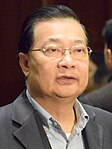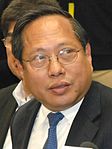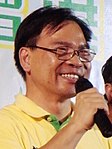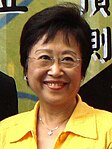Hong Kong local elections, 2011
|
|
|||||||||||||||||||||||||||||||||||||||||||||||||||||||||||||||||||||||||||||||||||||||||||||
|---|---|---|---|---|---|---|---|---|---|---|---|---|---|---|---|---|---|---|---|---|---|---|---|---|---|---|---|---|---|---|---|---|---|---|---|---|---|---|---|---|---|---|---|---|---|---|---|---|---|---|---|---|---|---|---|---|---|---|---|---|---|---|---|---|---|---|---|---|---|---|---|---|---|---|---|---|---|---|---|---|---|---|---|---|---|---|---|---|---|---|---|---|---|
|
|||||||||||||||||||||||||||||||||||||||||||||||||||||||||||||||||||||||||||||||||||||||||||||
|
All Elected Constituencies 412 (of the 507) seats in all 18 Districts Councils |
|||||||||||||||||||||||||||||||||||||||||||||||||||||||||||||||||||||||||||||||||||||||||||||
| Turnout | 41.49% |
||||||||||||||||||||||||||||||||||||||||||||||||||||||||||||||||||||||||||||||||||||||||||||
|
|||||||||||||||||||||||||||||||||||||||||||||||||||||||||||||||||||||||||||||||||||||||||||||

Map of the winning party by constituency
|
|||||||||||||||||||||||||||||||||||||||||||||||||||||||||||||||||||||||||||||||||||||||||||||
The 2011 Hong Kong District Council elections were held on 6 November 2011. Elections were held to all 18 District Councils of Hong Kong, returning 412 members from directly elected constituencies, each selecting a council member. The pro-Beijing camp won the most seats from this election while the Democratic Alliance for the Betterment and Progress of Hong Kong remained the biggest winner by taking 136 seats.
The Pro-democracy camp in Hong Kong has been urging for universal suffrage for decades. In 2005, a constitutional reform package was carried out by Donald Tsang, the Chief Executive. However, it was voted down by the pan-democrats as it did not state a clear timetable or road map to achieve an ultimate universal suffrage.
On 29 December 2007, the NPCSC (China's Standing Committee of the National People's Congress) announced that the Chief Executive and all members of Legislative Council may be selected by universal suffrage in 2017 and 2020 respectively. The statement by Beijing was unclear and it implied the term "universal suffrage" may be defined by the Central Government.
Afterward, Donald Tsang carried out another reform package in 2009. While the Civic Party and the League of Social Democrats councilors resigned from Legislative Council in order to launch a de facto referendum against the package and urging for real universal suffrage, their ally, the Democratic Party went for negotiation with the mainland officials and carried out a revised proposal. On 24–25 June 2010, the revised package was passed through the Legislative Council. It brought out a major split within the pan-democracy camp. A new radical party, People Power led by Wong Yuk-man and Albert Chan was announced to punish those who betrayal the cause of democracy. The People Power sent total number of 62 candidates into the election, most of them chose to contest with the Democratic Party and ADPL candidates.
...
Wikipedia





